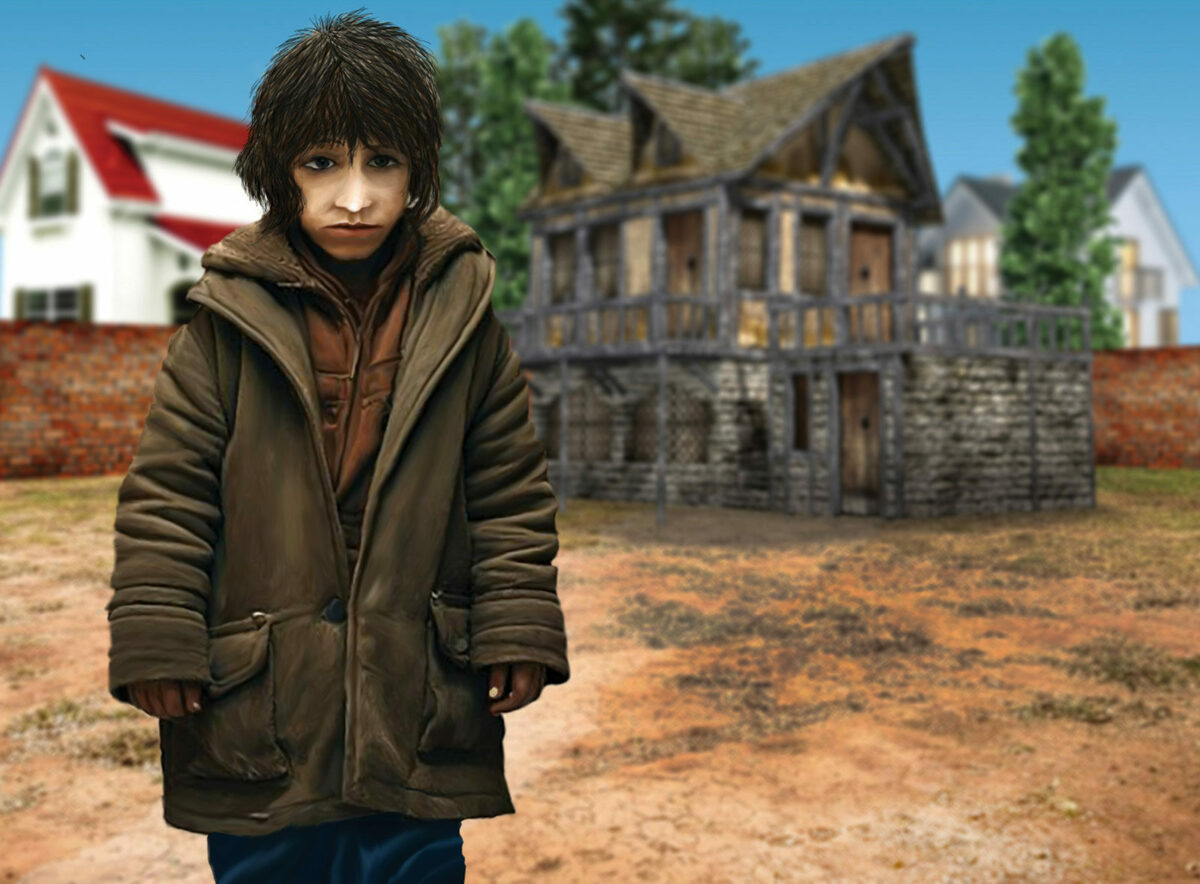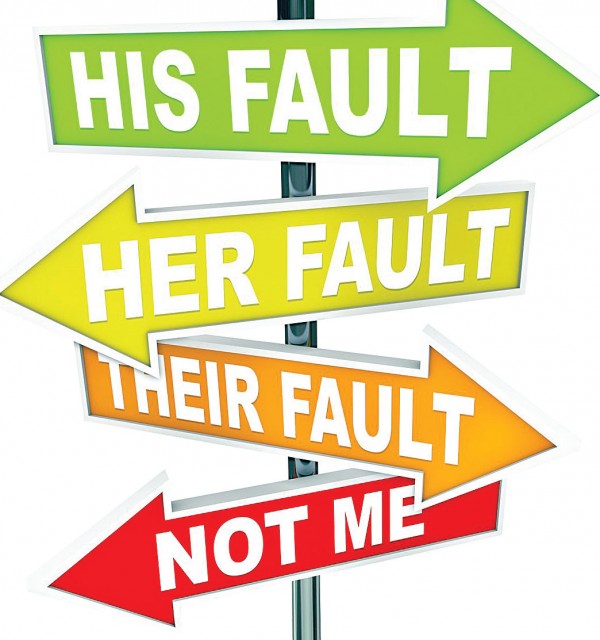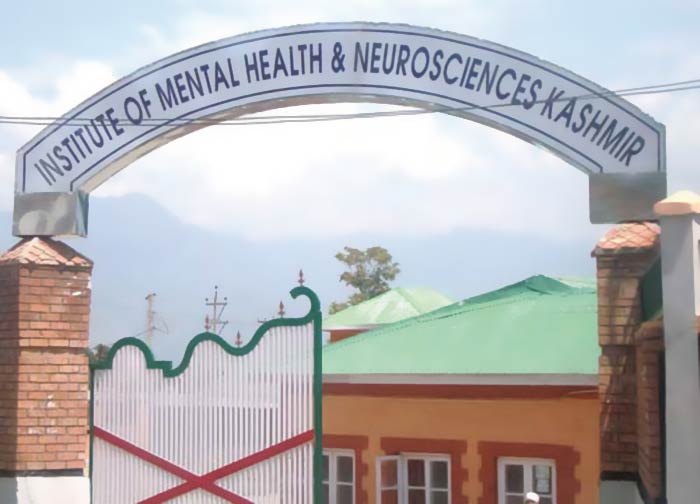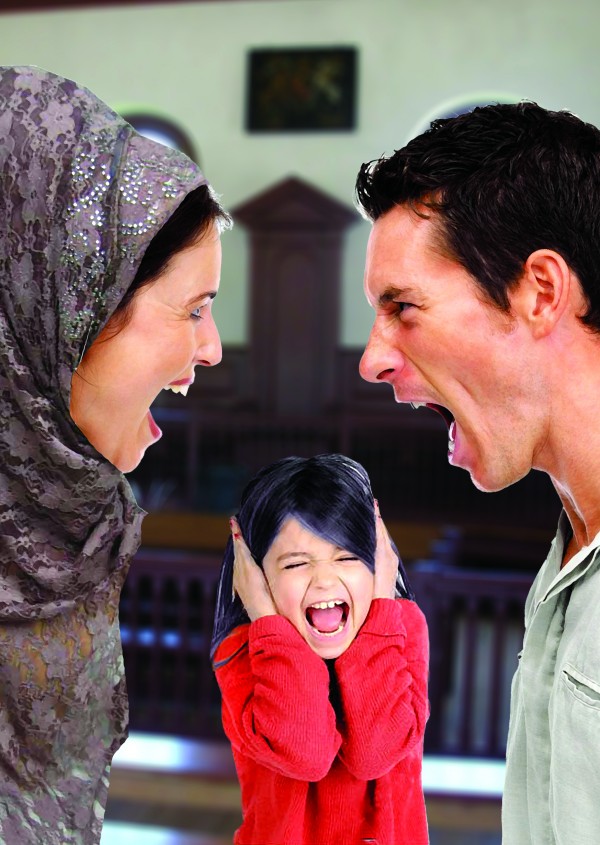Orphans apart, hundreds of children are living the lives of orphans within and outside their homes as a consequence of divorces, matrimonial discords and family disputes. Syed Shadab Ali Gillani meets a number of young men and women who have lived pathetic lives as orphans literally while their fathers and mothers were around
Behind a façade of normalcy, a silent sadness dwells in homes where the lights are on but nobody’s home. Children wander empty halls, desperately seeking emotional connections that parents are too broken to provide.
There are the ‘emotional orphans’ or ‘functional orphans’, children who feel abandoned emotionally even though one or both parents are alive and in most cases around. The child feels disconnected from their parents due to neglect, lack of nurturing, or emotional unavailability.
This could be due to divorce, separation, incarceration, mental illness, substance abuse or crippling communication in conjugal life. These children are isolated from family and community. Their basic social, emotional and material needs are unmet by parents or guardians. Forced by the situation in which they live, some of them take on parental responsibilities and roles beyond their age. They act as a caregiver for parents or siblings.
Adultified Childhood
Daayim is an educator by profession, harbouring a lifelong resentment towards his father, stemming from an incident during his childhood. The source of his disdain lies in his father’s abandonment of Daayim, his sister, and their mother in favour of another woman. When Daayim was 12 years old, his father married again. The woman Daayim’s father married was only 20 years old, just eight years older than Daayim.
Regrettably, Daayim’s father severed ties with his first wife and chose not to contribute financially to the family’s sustenance. “We endured a profoundly wretched existence, which, regrettably, has not improved significantly even now,” Daayim revealed. “However, now that I have come of age, I have initiated legal action against him.”
Recently, his father finally settled the outstanding financial obligations and divorced Daayim’s mother. While it does not provide complete closure, they can, “at the very least, attempt to move forward,” Daayim said, his voice tinged with a sigh.

Growing up without a father has left Daayim plagued by self-doubt and a pervasive sense of insecurity. “I find myself prone to overthinking, often introspecting excessively before making any decisions or expressing myself,” he revealed.
This stems from the fact that he experienced a childhood bereft of a crucial element necessary for a normal upbringing. Recently, when his family broached the topic of his impending marriage, anxiety overtook Daayim. “It feels as though I am averse to any commitment in my life, having witnessed the tumultuous course of my parent’s relationship, and I fear that my own marriage may meet a similar fate,” he confided.
Both Daayim and his younger sister frequently find themselves pondering the “what-ifs” of their lives, lamenting the absence of their parents’ enduring union. “Our lives would have undoubtedly been more secure and marked by greater self-assurance,” he mused.
Daayim’s story is not unique; it echoes through the experiences of countless individuals.
In The Shadows
A young woman in her mid-twenties bears the heavy burden of violent childhood trauma. Anonymously, she recounted a harrowing upbringing, marred by her parents’ incessant conflicts, often escalating to physical violence.
The protracted battles left her and her siblings traumatised, fuelling their growing resentment towards their father, who had become a figure of dread. “Gradually, we recognised our mother as a victim and our father as a monster with whom my siblings and I wanted no association. We concocted stories about his demise or our parents’ separation to sever all connections,” she revealed. “This ordeal left indelible scars and disturbed my psyche to the extent that I began telling friends that I had no father due to the deplorable and sickening atmosphere at home.” She believed that the persistent strife had fostered a stronger reliance on their mother.
Aslam, currently a university student, found himself thrust into a fatherless existence at the age of three when his parents parted ways. As his father embarked on a new marriage, Aslam grew up under the sole care of his mother. “My father is entirely oblivious to my life’s trajectory, disinterested in my well-being, and uninvolved in managing my expenses. He knows nothing about me,” Aslam lamented. “For the past 24 years, I have relied on the generosity of my uncle, a situation that leaves me perpetually plagued by insecurity and uncertainty about my future.”

He said he endured relentless bullying from his peers in school due to the absence of a father figure. “Living without a father has carved deep voids in my personality. I strive tirelessly to maintain relationships, fearing loss,” he confided. “I lead an incomplete life, bereft of the nurturing love of a father, which has sapped my self-confidence.” The absence of one parent had instilled in him a pervasive sense of anxiety. “I often question myself and society, asking if bringing a child into this world is solely about birth, with no responsibilities thereafter?”
Rahil, now 40 years old, experienced abandonment by his parents at the age of three as well, following their separation. His father, in particular, had taken a step back, and Rahil was poised to be placed in an orphanage as his mother relinquished the responsibility. It was his aunt who came to his rescue, pledging to raise him as her own. Rahil grew up in the nurturing embrace of his aunt and her husband, whom he affectionately began to regard as his parents. Although his childhood bore the scars of neglect from his biological parents, Rahil found solace in his aunt’s family. Today, a married man, Rahil strives to provide a serene and loving life for his own children.
The Kid ‘Commodity’
Another poignant narrative recounts the maltreatment of children, embroiled in familial disputes driven by financial concerns and property ownership. Jalal Ahmed recounts the moment he questioned his place in his family when his father abruptly insisted on arranging his marriage to his cousin.
“Our family boasts considerable wealth and an extensive property portfolio, all in our name. Both our families reside within the same compound. Initially, when my father proposed my marriage to my uncle’s daughter, I immediately declined. Having grown up together, we regarded each other as siblings,” Jalal said. “This proposition felt inappropriate. When I suggested that my marriage be arranged with a family unrelated to ours, my parents sought to convince me by citing past examples of my aunt and mother, who are sisters and were married to two brothers. Yet, my father began coercing me into considering at least my uncle’s second daughter. That’s when things took a turn for the worse.”

In fact both the families started pressuring their children into this marriage. “I always felt like an orphan, despite having two living parents. My parents treat me more like a commodity or asset to be used for accumulating money and property, rather than a beloved son to be cared for,” Jalal regretted. They made decisions for him based on what would financially benefit the family, without considering Jalal’s wants or needs.
“My father insinuated that it would be in my best interest and that if I did not comply, they would disinherit me from our shared assets. These threats forced me to reevaluate my family dynamics. I soon realised how I had been emotionally manipulated since childhood into conforming to decisions that primarily favoured my parents,” Jalal lamented.
Ultimately, Jalal acquiesced to his family’s demands and wed his cousin, an experience that laid bare the manipulation and emotional coercion he had endured throughout his life.
This treatment made Jalal feel unloved and unsupported as if he never had parents at all. Though they were alive, their self-serving actions left Jalal feeling like an orphan.
Broken Homes
In a heart-wrenching account, a young man named Yawar shares the tragic tale of his estranged sister, a narrative that continues to torment him every time he revisits it. “My sister, Afrah, exists in the world but is no longer part of our lives,” Yawar solemnly discloses. He recounts the story of how, when Afrah was in her early twenties, someone from their neighbourhood divulged to their parents that she was romantically involved with a young man residing nearby.
“I knew that my parents would not let this matter slide easily. I had witnessed them embroiled in incessant disputes throughout my life. Even in situations unrelated to my sister or me, they somehow managed to implicate us,” Yawar reveals. “Our lives had become a relentless nightmare, exacerbated when my sister was accused of tarnishing our family’s reputation.”
Yawar goes on to describe how, even after the ordeal reached a brutal conclusion, they occasionally locked and physically abused Afrah. “The young man with whom she had a relationship distanced himself and, in a cruel twist, accused her of stalking and obsession. My parents chose to believe everyone except my sister. My relatives meticulously scrutinised her character, driving her to the brink of suicide,” Yawar tearfully recounts, highlighting how the mere thought of their daughter’s demise failed to soften their hearts.
“They endlessly blamed each other for failing to instil values in us. Unwilling to have my sister die under their roof and to absolve themselves of responsibility for the state they had reduced her to, they sent her to live with our grandparents, never to return. When my aunts and uncles at my grandparents’ house discovered that her parents had disowned her, they too refused to shoulder the burden, eventually consigning her to an orphanage,” Yawar reflects. “I was too young to intervene on her behalf. It continues to boil my blood today that I have a sister who is scarcely acknowledged, all because she fell in love with a boy who, by the way, is now married with children and was spared the torment my sister endured.”
Yawar revealed how he attempted multiple times to locate his sister, even in various orphanages, but to no avail. “I came to realise that she had chosen to stay at an orphanage while instructing the staff not to disclose her presence to anyone in her family. Frankly, I agree with her choice. They smeared my sister’s name, and she is likely much happier there than she ever would have been here, in what was supposed to be her ‘home’.”
The Gender Dilemma
Hina shares her story of parental separation, which unfolded when she was merely five years old. The catalyst behind their parting was her father’s unrelenting desire for a male heir, ultimately leading to her father abandoning her mother. “We endured a life filled with misery, but my mother went to great lengths to provide for me and support my education,” Hina recounts. “I have no desire to ever see my father again, and my resentment towards him deepened after my mother’s untimely death,” she adds.
“My life has been fraught with hardship, and my greatest regret is that my mother departed prematurely, undeserving of such a fate. I am grateful to the local committee that supported us during those trying years, providing invaluable assistance,” she says, her voice quivering.
After her mother’s passing, her father attempted to bring her back home, but she vehemently refused. “How can I coexist with a man who essentially was one of the reasons for my mother’s death and subjected us to a life of suffering?” she questions.
Today, Hina is married and leads a content life. However, the trauma she endured lingers. “The local Mohalla Committee inquired if I wished to marry, and I agreed. They facilitated my wedding, and I now lead a fulfilling life with my children and husband. Yet, at times, my past continues to haunt me,” she laments.
Expert Perspectives
Dr Yasir Rather, a Professor at the Institute of Mental Health and Neurosciences (IMHANS) Srinagar, reveals that they frequently encounter children in clinical settings who have experienced tumultuous family dynamics and the distressing separation of their parents. “Such children are susceptible to an array of mental health challenges, including heightened stress, anxiety, depression, and behavioural issues,” Yasir notes.

They may grapple with self-esteem issues, find it difficult to form healthy relationships and face academic and social difficulties, Yasir said. “Parents and caregivers must provide emotional support and, when necessary, seek professional assistance to address these issues.”
He underscores that children exposed to marital conflicts or parental separation often experience disruptions in their personality development, fundamentally altering the course of their growth. “These children may develop traits such as insecurity, mistrust, and a fear of abandonment. Some may exhibit borderline traits, antisocial behaviour, or substance-related problems. It is essential to recognise that each child’s response can differ, and creating a supportive environment, counselling, and maintaining consistent routines can help mitigate adverse impacts on personality development,” Yasir emphasises.
Asiya Niyaz, a consultant clinical psychologist at IMHANS, echoes these sentiments, explaining that when children witness their parents embroiled in conflicts, it exacts a toll on their mental and emotional well-being. Such children often grapple with feelings of mistrust. “Single parenthood leaves a void in a child’s life, and if divorce occurs when the child is in their formative years, the ramifications can be profound. The trauma of divorce can cast a long shadow, often hindering the development of secure relationships in the future,” Asiya cautions.

Children who find themselves caught in the crossfire of parental disputes are at a heightened risk of developing mental health issues, as they often feel neglected. “These children internalise family issues and are more susceptible to mental health disorders. Introverted children, in particular, tend to internalize these challenges,” Asiya observes.
Regarding treatment and preventative measures, Asiya emphasizes that parents should remain vigilant for warning signs such as irritability, anger issues, or declining performance in their children. These are indicators that professional counselling may be necessary, although parents embroiled in disputes often overlook these signs. “Many adolescent patients seek counselling independently, as they possess the capacity to comprehend the situation. However, younger children face greater difficulties. Timely counselling and treatment are vital for a better quality of life,” Asiya concludes.
In the Courts
Advocate Sibtain Geelani has observed the heart-wrenching consequences that children endure when their parents are entangled in divorce, separation, or acrimonious disputes. In a poignant case, she highlights how a father’s descent into abusive and toxic behaviour scarred his child, leaving the young one consumed by an intense hatred. “These are just a few of the many heartbreaking stories where innocent children become casualties of marital discord. Such cases frequently find their way into our courtrooms,” she laments, bearing witness to the anguish etched on these young souls.
The courtroom, it seems, is a repository for these heart-rending narratives, with such cases surfacing on an almost daily basis. “The most heart-wrenching aspect of our profession,” confides another legal professional, “is witnessing the suffering endured by innocent children. No child should ever be caught in the crossfire of adult disputes.”
Legacy of Faith
Kashmir has all along preached the responsibilities of parents and children. From the pulpits, it is being said almost every day what the faithful are supposed to do.
Maulana Mohammad Imran Zargar emphasises the rights that parents hold over their children according to Shariah. Drawing from a Hadith, he underscores the importance of showing mercy to children and respecting elders. “The first act of mercy is nurturing the child, encompassing their physical, mental, and moral development. Parents play a paramount role in preparing their children for society,” he affirms.
Imran further stresses that parents must set aside their issues and exercise caution to shield their children from mental anguish. “Even when a child errs, parents should respond with patience and care. In cases of marital disputes, parents must maintain a compassionate attitude to shield their children from negative influences. Seeking guidance from Islamic scholars, medical professionals, and any other available resources becomes crucial. Parents should equip themselves with a sound understanding of Islamic knowledge to guide their children on the right path,” he adds with a sense of lamentation.
(Names of all the characters, excepting experts, have been changed to protect their identity.)
from Kashmir Life https://ift.tt/SuxMejA
via IFTTThttps://kashmirlife.net
No comments:
Post a Comment